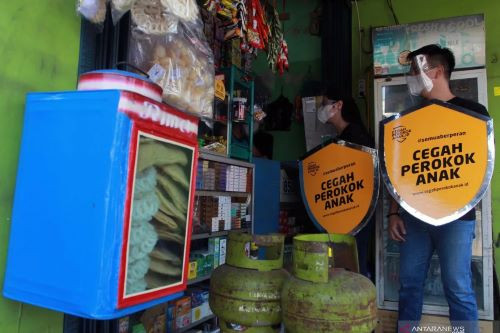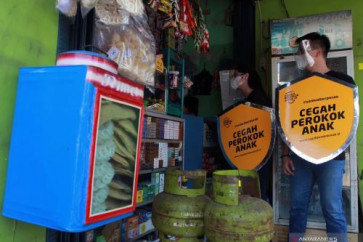Popular Reads
Top Results
Can't find what you're looking for?
View all search resultsPopular Reads
Top Results
Can't find what you're looking for?
View all search resultsRegulatory loopholes in tobacco promotion on social media
Without strict regulations, children and teenagers will continue to be the target of promotions that can encourage them to start smoking.
Change text size
Gift Premium Articles
to Anyone
I
n an era of increasingly widespread social media use, the tobacco industry continues to try to utilize digital platforms to market its products. The lack of strict regulations in the digital world opens up opportunities for hidden advertising and content that promotes cigarettes and other tobacco products, such as e-cigarettes and vapes, which can reach children and adolescents as potential long-term target markets.
While social media platforms like YouTube, Instagram, X, Facebook and TikTok claim to have strict guidelines to limit the promotion of tobacco products, weak oversight and enforcement of the rules allow this harmful content to continue to spread. The tobacco industry is now more innovative in using digital technology and user-generated content (UGC), as well as collaborating with influencers to create disguised promotions.
This content is often not labeled as advertising and appears in product reviews, entertainment or educational videos, making it difficult for platform moderation systems to identify.
The Tobacco Enforcement and Reporting Movement (TERM) report “Vape Tricks in Indonesia: How E-Cigarette Companies Use Social Media to Hook Youth” in March 2022 revealed that the social media behemoths Instagram and Facebook have become the leading platforms for spreading tobacco product promotions, especially e-cigarettes. In Indonesia, more than 50 percent of teenagers aged 13-15 years have been exposed to online tobacco product marketing.
Without strict regulations, children and teenagers will continue to be the target of promotions that can encourage them to start smoking.
The tobacco industry is also using a variety of digital strategies to target young users through new products such as e-cigarettes, nicotine pouches and heated tobacco products. Their marketing tactics often portray these products as part of a modern lifestyle, featuring young, healthy-looking users.
For example, Big Tobacco has leveraged platforms like Instagram, Facebook and TikTok, as well as working with influencers, to subtly promote its products. Tobacco products are often paired with coffee, alcohol or recreational activities, making them appear to be part of a healthy, everyday routine, even though they are harmful.



















